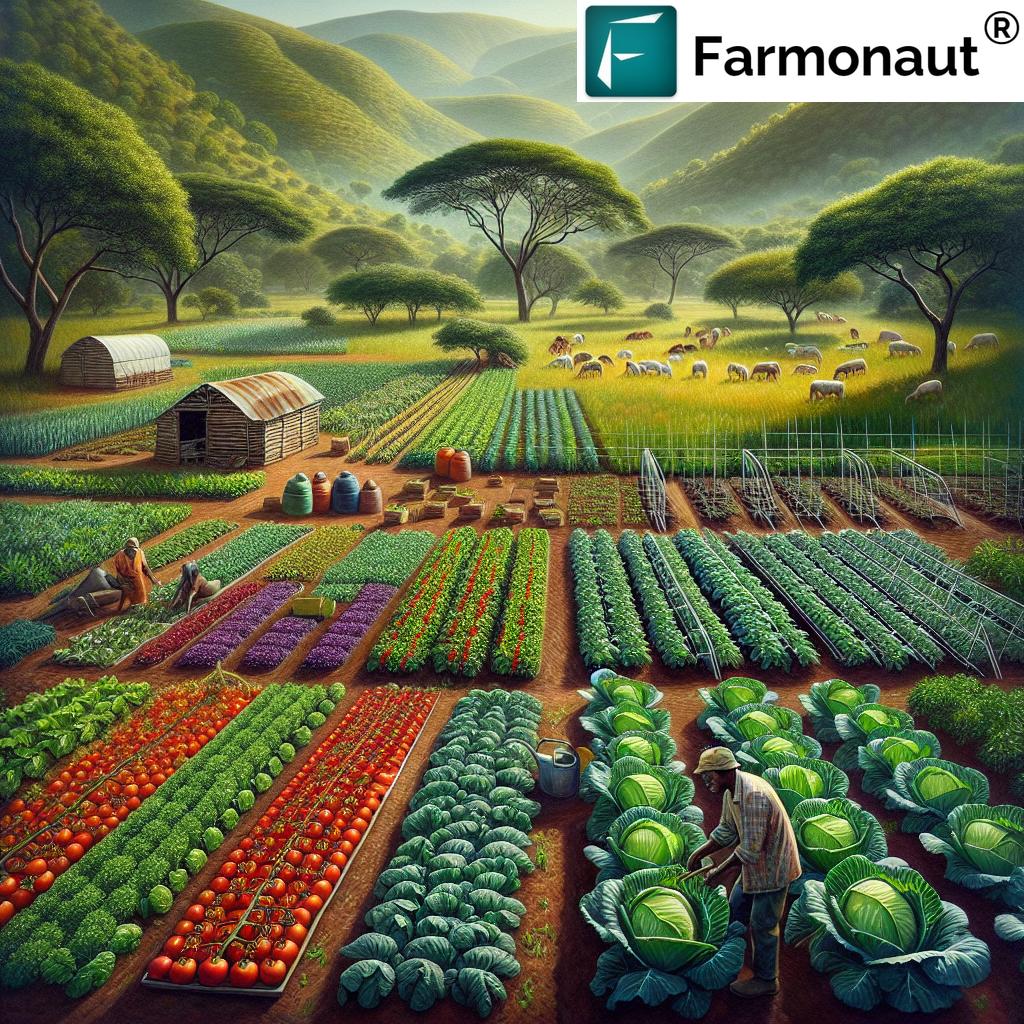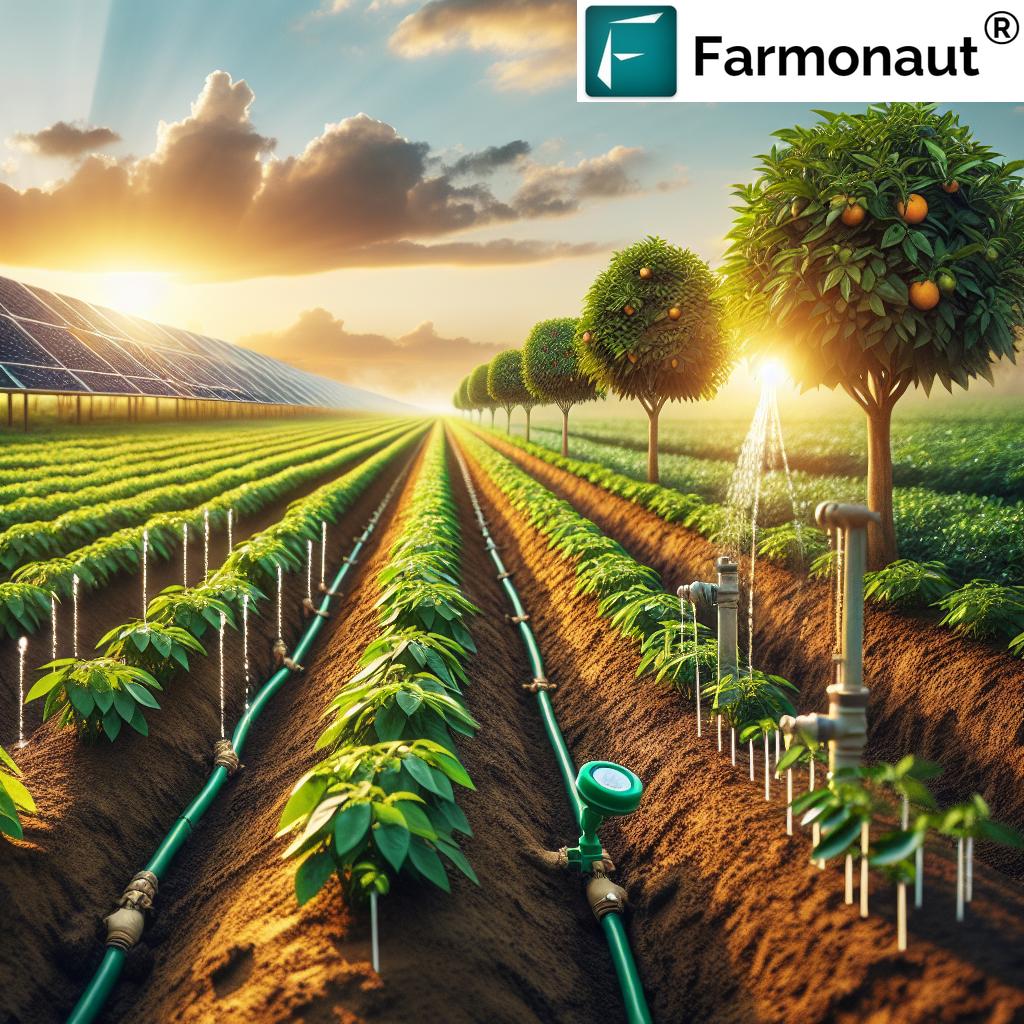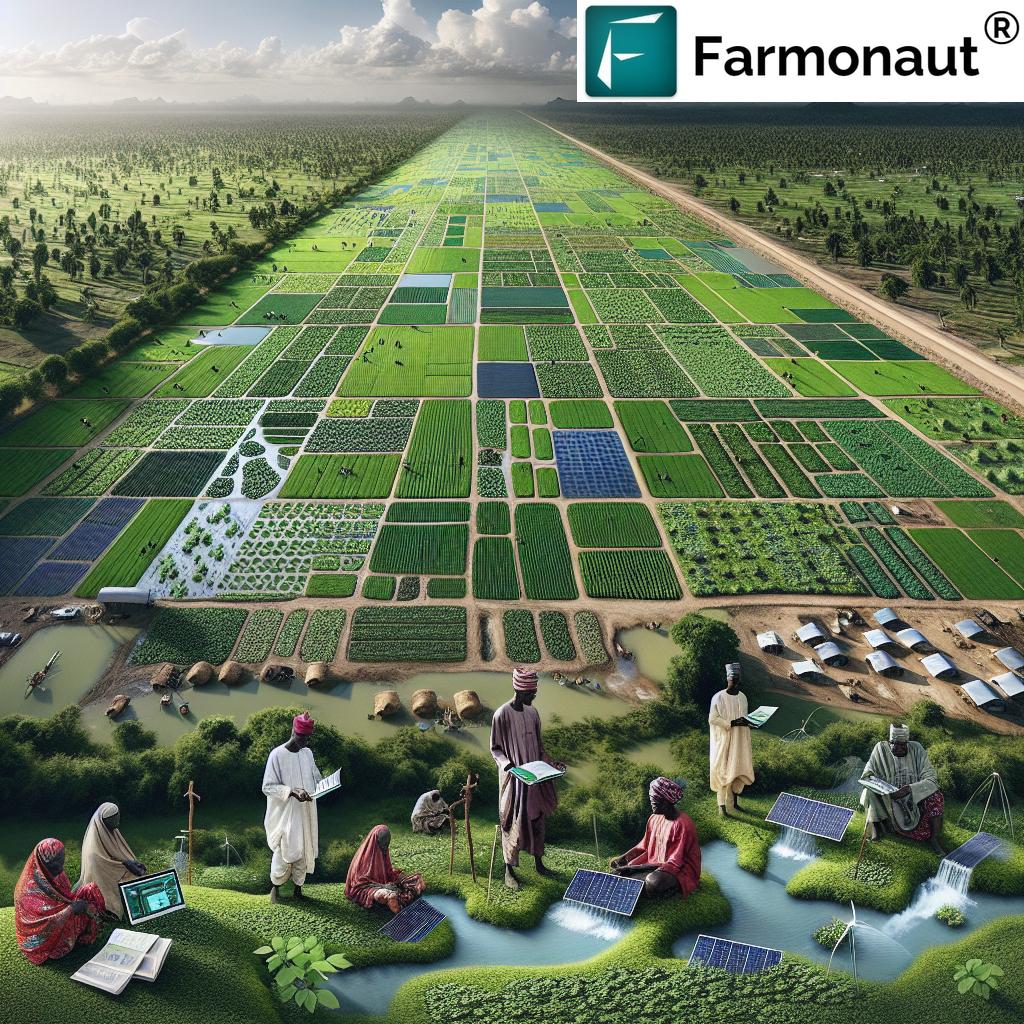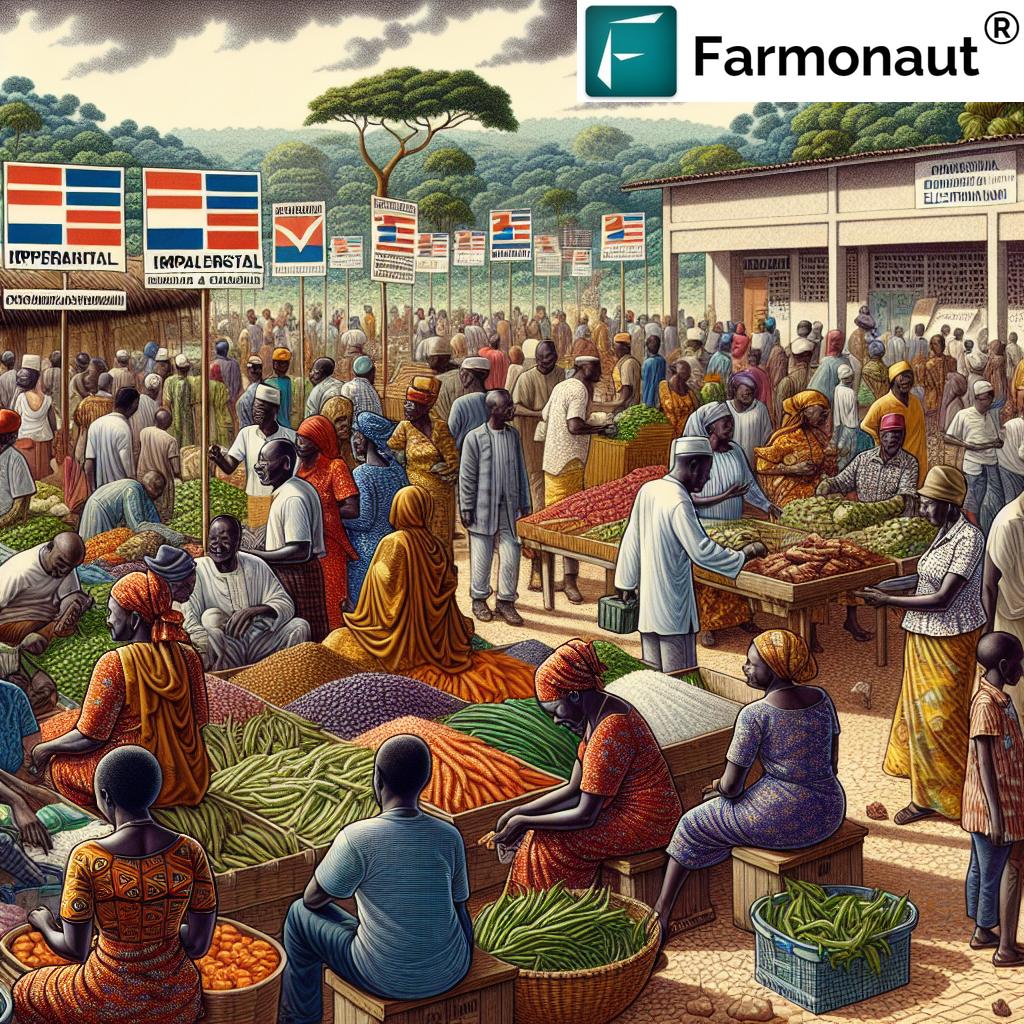Sustainable Sourcing Revolution: Kenya’s Horticulture Industry Meets European Demand for Responsible Produce
“Kenya’s horticulture industry exports over 50% of its produce to Europe, with sustainable practices driving growth.”

In recent years, we’ve witnessed a remarkable transformation in Kenya’s horticulture industry, as it aligns with the growing European demand for sustainably sourced produce. This blog post delves into the intricate dynamics of this sustainable sourcing revolution, exploring how Kenya’s fruit and vegetable exports are evolving to meet the stringent requirements of environmentally conscious European consumers.
The Rise of Sustainable Agriculture Practices in Kenya
Kenya’s horticulture sector has long been a cornerstone of the country’s economy, but the landscape is rapidly changing. Sustainable agriculture practices are no longer just a buzzword; they’ve become a necessity for farmers looking to tap into the lucrative European market. Let’s explore the key factors driving this shift:
- Increasing consumer awareness in Europe about the environmental impact of food production
- Stringent EU regulations on pesticide use and food safety
- Growing demand for organic and ethically sourced produce
- Competitive advantage gained through sustainability certifications
As we delve deeper into these practices, it’s important to note how technology is playing a crucial role. Agritech solutions for sustainability, such as those offered by Farmonaut, are empowering Kenyan farmers to adopt more efficient and environmentally friendly methods. Through satellite-based crop health monitoring and AI-driven advisory systems, farmers can optimize their resource use while meeting international standards.
Kenyan Produce Certification: Meeting European Standards
Kenyan produce certification has become a critical aspect of the export process. European retailers and consumers are increasingly demanding proof of sustainable and responsible farming practices. The most common certifications include:
- GlobalG.A.P. (Good Agricultural Practices)
- EU Organic Certification
- Fair Trade Certification
- Rainforest Alliance Certification
These certifications not only ensure market access but also often command premium prices, incentivizing farmers to adopt more sustainable methods. The process of obtaining these certifications can be complex, requiring significant investments in training, infrastructure, and documentation.
Organic Farming Techniques: A Game-Changer for Kenyan Horticulture
“Organic farming techniques in Kenya have increased fruit and vegetable yields by up to 30% while meeting EU import standards.”
Organic farming techniques have emerged as a game-changer in Kenya’s horticulture sector. These methods not only align with European consumers’ preferences but also offer numerous benefits to farmers and the environment:
- Improved soil health and biodiversity
- Reduced dependency on synthetic inputs
- Higher profit margins due to premium pricing
- Enhanced resilience to climate change
The transition to organic farming requires careful planning and support. Many Kenyan farmers are turning to advanced technologies to aid in this transition. For instance, Farmonaut’s satellite-based crop health monitoring can help farmers identify areas of stress or disease without relying on chemical interventions.
The European Market for African Produce: Trends and Opportunities
The European market for African produce is evolving rapidly, driven by changing consumer preferences and a growing awareness of sustainability issues. Key trends include:
- Increased demand for exotic fruits and vegetables
- Growing market for ready-to-eat and pre-cut produce
- Rising popularity of organic and fair trade products
- Emphasis on traceability and transparency in supply chains
These trends present both challenges and opportunities for Kenyan exporters. To capitalize on these opportunities, many are investing in value-addition processes and adopting blockchain-based traceability solutions to ensure transparency from farm to fork.
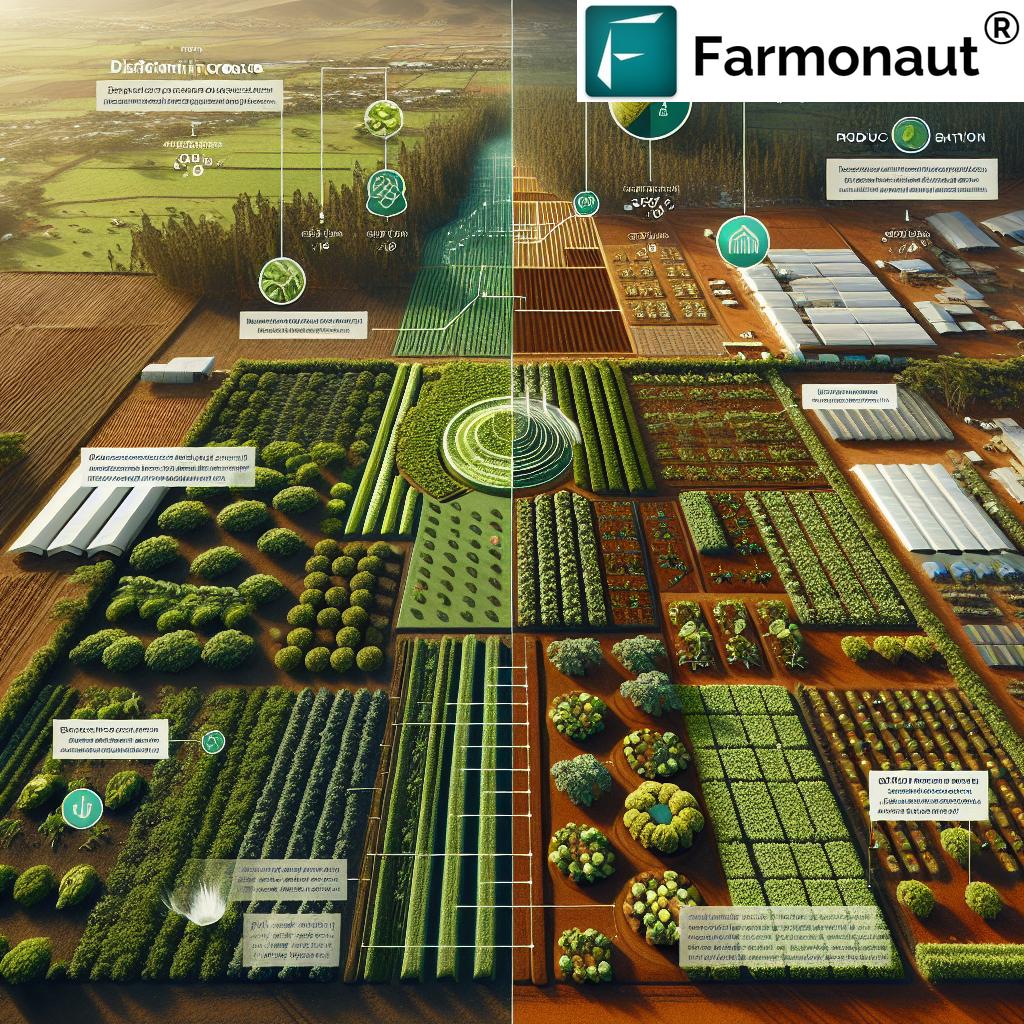
Agricultural Supply Chain Management: From Farm to European Tables
Agricultural supply chain management is a critical aspect of Kenya’s horticulture export industry. The journey of fresh produce from Kenyan farms to European tables involves several complex stages:
- Harvesting and post-harvest handling
- Quality control and grading
- Packaging and labeling
- Cold chain logistics
- International freight and customs clearance
- Distribution to European retailers
Each stage presents its own set of challenges, from maintaining product freshness to navigating complex international regulations. Innovative solutions, such as IoT-enabled cold chain monitoring and blockchain-based traceability systems, are helping to streamline these processes and reduce waste.
Explore Farmonaut’s API for advanced agricultural data insights
Sustainable Development in Agriculture: Balancing Growth and Conservation
Sustainable development in agriculture is at the heart of Kenya’s horticulture revolution. This approach seeks to balance economic growth with environmental conservation and social responsibility. Key aspects include:
- Water conservation techniques
- Integrated pest management
- Soil health management
- Biodiversity preservation
- Fair labor practices
These practices not only align with EU import standards but also contribute to the long-term resilience of Kenya’s agricultural sector. Technologies like precision agriculture and remote sensing are playing a crucial role in implementing these sustainable practices at scale.
Horticultural Market Trends: Adapting to Changing Consumer Preferences
Horticultural market trends in Europe are constantly evolving, and Kenyan exporters must stay attuned to these changes. Some key trends include:
- Growing demand for super-foods and nutrient-dense produce
- Increased interest in lesser-known tropical fruits
- Rising popularity of plant-based diets
- Preference for minimally processed, natural products
To capitalize on these trends, many Kenyan farmers are diversifying their crop portfolios and investing in value-addition processes. This not only helps meet European demand but also increases the resilience of the horticulture sector against market fluctuations.
Responsible Sourcing in Horticulture: Building Trust and Transparency
Responsible sourcing in horticulture is becoming increasingly important for European retailers and consumers. This concept encompasses:
- Ethical labor practices
- Environmental stewardship
- Food safety and quality assurance
- Transparency in supply chains
Kenyan exporters are responding to this demand by implementing robust traceability systems and adhering to international labor standards. Many are leveraging blockchain technology to provide end-to-end transparency, allowing consumers to trace their produce back to the specific farm it came from.
Check out Farmonaut’s API Developer Docs for integration options
Challenges and Opportunities in Kenya’s Horticulture Sector
While the shift towards sustainable sourcing presents numerous opportunities, it also comes with its share of challenges:
- High initial costs of certification and technology adoption
- Stringent EU regulations on pesticide residues and food safety
- Competition from other African countries
- Climate change impacts on production
However, these challenges are driving innovation in the sector. Farmers and exporters are investing in climate-smart agriculture, precision farming techniques, and advanced post-harvest technologies to maintain their competitive edge in the European market.
The Role of Technology in Sustainable Horticulture
Technology is playing a pivotal role in driving sustainable practices in Kenya’s horticulture sector. Some key technological interventions include:
- Satellite-based crop monitoring for precision agriculture
- AI-powered pest and disease detection
- IoT sensors for efficient water and nutrient management
- Blockchain for supply chain traceability
These technologies are not only improving productivity but also helping farmers meet the stringent sustainability requirements of the European market. Companies like Farmonaut are at the forefront of this technological revolution, providing affordable and accessible solutions to farmers of all scales.
The Future of Kenya’s Sustainable Horticulture Industry
As we look to the future, Kenya’s horticulture industry is poised for continued growth and innovation. Key trends to watch include:
- Increased adoption of vertical farming and hydroponics
- Growing focus on circular economy principles in agriculture
- Expansion into new European markets
- Development of value-added products for export
By embracing sustainable practices and leveraging technology, Kenya’s horticulture sector is well-positioned to meet the evolving demands of the European market while contributing to the country’s economic development and environmental conservation goals.
Sustainable Horticulture Practices in Kenya: Impact on European Market
| Sustainable Practice | Implementation Rate (%) | Environmental Impact | Market Demand in Europe | Certification Requirements |
|---|---|---|---|---|
| Organic Farming | 35% | High | High | EU Organic, GlobalG.A.P. |
| Water Conservation | 60% | High | Medium | GlobalG.A.P., AWS |
| Integrated Pest Management | 70% | Medium | High | GlobalG.A.P., LEAF |
| Fair Trade Initiatives | 40% | Low | High | Fairtrade International |
| Carbon Footprint Reduction | 25% | High | Medium | ISO 14064, PAS 2050 |
Conclusion: A Sustainable Future for Kenya’s Horticulture
The sustainable sourcing revolution in Kenya’s horticulture industry represents a significant shift towards more responsible and environmentally friendly practices. By aligning with European demand for sustainable produce, Kenyan farmers and exporters are not only securing their place in a competitive global market but also contributing to the long-term health of their land and communities.
As we’ve explored throughout this blog, the journey towards sustainability is complex and multifaceted, involving changes in farming practices, supply chain management, and market strategies. However, with the support of innovative technologies and a commitment to continuous improvement, Kenya’s horticulture sector is well-positioned to thrive in this new era of responsible sourcing.
The future of Kenya’s horticulture industry lies in its ability to balance productivity with sustainability, meeting the growing global demand for responsibly sourced produce while preserving the natural resources that make this production possible. As consumers, retailers, and policymakers continue to prioritize sustainability, Kenya’s commitment to responsible sourcing will undoubtedly serve as a model for other agricultural regions around the world.
FAQ Section
Q1: What are the main sustainable practices adopted by Kenyan horticulture farmers?
A1: Kenyan farmers are increasingly adopting organic farming methods, water conservation techniques, integrated pest management, fair trade practices, and measures to reduce carbon footprint.
Q2: How is technology contributing to sustainable horticulture in Kenya?
A2: Technology plays a crucial role through satellite-based crop monitoring, AI-powered pest detection, IoT sensors for resource management, and blockchain for supply chain traceability.
Q3: What certifications are important for Kenyan produce in the European market?
A3: Key certifications include GlobalG.A.P., EU Organic Certification, Fair Trade Certification, and Rainforest Alliance Certification.
Q4: How is Kenya’s horticulture industry adapting to climate change?
A4: Farmers are implementing climate-smart agriculture techniques, diversifying crop portfolios, and using advanced technologies for better resource management and resilience.
Q5: What are the main challenges facing Kenya’s sustainable horticulture sector?
A5: Challenges include high initial costs of certification and technology adoption, stringent EU regulations, competition from other countries, and climate change impacts.





